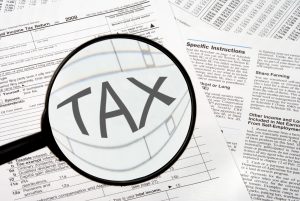The definition of supplemental income is what you earn above and beyond your regular compensation. Most people understand the meaning of recurring income. It’s what you make from your employer and is usually referred to as “income.” However, supplemental income is a little more complicated and misunderstood. So what could be extra income?
Table of Contents
WHAT IS SUPPLEMENTAL INCOME?

But what about supplemental income? Supplemental earnings are above and beyond what you typically earn and are differentiated from regular payments in that they are considered separate for tax purposes. An employer pays supplemental wages in addition to the person’s average wages. Below is a list of some of the more common types of extra income:
 Bonuses
Bonuses- Tips
- Commissions
- Overtime pay
- Severance pay
- Taxable fringe benefits — examples include unused vacation or sick days
- Retroactive pay
- Moving expense reimbursement
- Online side hustle
- Social Security benefits
This list of sources of supplemental income is by no means all-inclusive, but the idea is easy to understand. Because the two types of income are viewed as totally distinct from one another for tax purposes, it’s essential to understand what the difference means to your taxes as we enter the new tax season.
HOW SUPPLEMENTAL INCOME IS PAID TO YOU

According to the law, the first key difference to understand regarding regular and supplemental income is the time frame that the two are allowed to be paid out. For example, after you work and earn a steady income, you must be compensated for this within a seven-day window after the end of the pay period.
Conversely, supplemental income is not governed by the same time constraints. For example, a bonus you earn for the last quarter of the previous year may not be paid to you until February.
SOCIAL SECURITY INCOME

Then there is Supplemental Security Income, SSI, a government program that provides benefits (i.e., income payments) to disabled adults and children who meet low-income thresholds. Social Security Income benefits are also payable to people 65 and older without disabilities who meet the minimum thresholds.
WITHHOLDING SUPPLEMENTAL INCOME

A second primary factor that separates regular from supplemental income is how withholding is calculated. For ordinary income, the basis for withholding is usually your marital status and the number of allowances you claim (think this form you complete when starting a new job).
Supplemental wages are a little trickier. There are three different acceptable options for withholding additional income taxes: the first is to add your total wages together (regular and supplemental) and tax that entire amount. The second method the IRS allows is taxing the extra income at a flat 25% rate. Finally, a company can apply the relatively complex formula to separately tax your supplemental income and regular wages. Confirm with TurboTax or HRBlock.
One caveat: if you are lucky enough to earn over $1 million in extra income (hello, 1%!), that money must be taxed at the maximum allowed tax rate (currently 35%).
VACATION PAY AND TIPS

Your vacation pay and any tips earned are treated differently for tax purposes, depending on the situation.
Vacation pay is considered a supplemental form of income if the amount earned exceeds the regular income you would have been paid during the time period in question.
If you are in a line of work where tips are involved, take note: tips are treated as supplemental income if you receive both wages and tips. In cases where your employer does not withhold tax from your regular earnings, the tips are added to the regular wages, and that final amount is then taxed. However, if your employer withholds tax on your regular hours, tips are subject to the 25% rate.
THE BONUS CONUNDRUM

Bonuses can be an exciting and fortunate extra boon to your pocket; however, some people experience a rude awakening when they see what a chunk Uncle Sam has taken from that annual (or semi-annual, or quarterly) windfall.
If you end up with significantly less bonus pay than expected, the culprit is most likely the withholding.
The reason is as follows:
Most employers choose to tax at the flat 25% rate if a separate check is involved with your bonus. The reason is that it makes life easier on the accounting side for the company. However, when your bonus money is lumped into your regular paycheck, your tax liability will be higher since the amount being taxed is higher. To avoid a nasty bonus tax shock, take a peek at this calculator courtesy of TurboTax.
PAYING TAXES ON SUPPLEMENTAL INCOME
Also, there are tax implications for different types of supplemental income. Check with your tax specialist or tax software to avoid concerns.
Fortunately (pun intended here at The Fortunate Investor), several benefits are not taxed as supplemental income. The most common are moving expense reimbursements and other fringe benefits from your employer. These may include your company reimbursing you for business expenses. For example, the costs may include using your car for business or an on-site gym at the company location.
7 SUPPLEMENTAL INCOME JOBS TO HELP PAY THE BILLS

- Freelance. Become a freelance writer on Freelancer.
- Gig economy driver. Start as a Uber / Lyft driver.
- Online Surveys. Fill out online surveys such as Opinion Outpost or Pinecone.
- Vlog. Start a Vlog on Youtube to generate passive income and talk about something that interests you.
- Teach. Teach a class through a local college or Udemy online.
- Virtual Assistant. Become a virtual assistant/scheduler.
- Consulting. Start consulting on a topic you are an expert on.
- Nanny/Babysit. This is straightforward: you can be the neighborhood babysitter and start making a lot of money in your free time.
- Share your expertise. Are you an expert? Find a hobby that you know about and can teach someone else. Offer instructions/lessons on guitar, working out, English, computer tech support, etc.
 Walk dogs. So there are apps that offer this service, such as Wag. However, you can be the local dog walker and cut out the intermediary for your neighbors and friends. Most pet owners are willing to spend as much on them as they would their children.
Walk dogs. So there are apps that offer this service, such as Wag. However, you can be the local dog walker and cut out the intermediary for your neighbors and friends. Most pet owners are willing to spend as much on them as they would their children.- Website/Blogging. Have skills as a graphic designer, programmer, or web designer? Assisting with a web project is one of the easiest ways to make extra money online.
- Become a visiting professor. Trade schools, universities, and local colleges offer classes in niche topics that you can use your expertise. You do not need to have a Ph.D., but you should have some credibility to be a subject matter expert.
- Art. Have a crafty side? Consider opening a shop on Etsy or ArtFire. Put your crocheted blankets, homemade cards, and handcrafted jewelry on the market.
- House sit. Similar to dog walking or watching while people are on vacation, you can watch their house while they are on vacation. This could be as simple as watering plants, getting the mail, taking out the recycling bin, or other routine tasks that make it look like they are home.
- Rent A Room. If you have a house with an extra room, you should consider renting out a room or multiple rooms. This is a real asset that you can convert into a great income generator.
TIPS FOR BUILDING SUPPLEMENTAL INCOME

Do you want to make more money or have your own business? This is an excellent time to start thinking of new investments, which could be investing in yourself, such as education, a new business, the stock market, or other ways to increase your income. Supplementing your income means extra cash but you have to understand exactly what you want to do with it. Managing your supplemental income is critical or you could end up not getting much benefit out of it. One good way to use this supplemental income at least initially is to pay off debts. Paying off debt in strategic ways can help free your capital. This will help you keep more in your pocket. It’s a good idea to listen to experts such as Alex Kleyner so that you can learn as much as possible about bringing your debts under control. Once you understand your supplemental income goals you can then go ahead with trying to find a job that will assist you with reaching it.
First, you need to consider your long-term goal and how you can achieve it. Start by thinking about your strengths and how you can add the most value. Ideally, this would be something you are both good at and enjoy. Think of it as a job/hobby or a “jobby.” You enjoy doing it so much that it does not feel like work but fun.
 It’s beginning to look a lot like bonus season as Christmas and the year’s end are quickly approaching. But unfortunately, while everyone enjoys the bonus money for the holidays, many people get very upset because they believe their bonuses are taxed at a higher rate. But what about how supplemental income impacts your taxes?
It’s beginning to look a lot like bonus season as Christmas and the year’s end are quickly approaching. But unfortunately, while everyone enjoys the bonus money for the holidays, many people get very upset because they believe their bonuses are taxed at a higher rate. But what about how supplemental income impacts your taxes?
Similarly, many people avoid cashing out their vacation hours at the end of the year because they believe they are taxed at a higher rate when they’re paid out, too. Luckily, these types of extra income aren’t taxed at a higher rate. But, unfortunately, they seem like they are. It’s all part of the weird process known as the supplemental tax rate (sometimes called additional income tax).
How Your Supplemental Taxes Are Withheld

Your employer will withhold federal taxes based on Internal Revenue Service (IRS) guidelines for any regular paycheck. Similarly, your employer has to withhold federal taxes when you earn a bonus or are paid out for vacation time. Unfortunately, the IRS treats supplemental wages, like bonuses, differently than regular wages. For most people, this different treatment makes it seems like you’re paying more taxes on your premium than the rest of your income. However, some knowledge will help you realize that isn’t the case. Also, use Turbo Tax to maximize your tax return.
What are Supplemental Wages?

Supplemental wages cover more than just bonuses and vacation time you sold back to your company. We’ve gone into greater depth on additional wages, but the simple definition is wage payments to an employee that aren’t regular wages. While that seems broad, they give many examples of other wages that include the following:
- bonuses
- commissions
- overtime pay
- payments for accumulated sick leave
- severance pay
- awards
- prizes
- back pay
- retroactive pay increases and
- payments for nondeductible moving expenses.
How Supplemental Wages Withholding Works

Withholding on supplemental wages, like bonuses, differs depending on how much money you make in additional salaries. For the vast majority of people, it works as described below. However, different rules must be followed if you earn more than $1,000,000 in supplemental wages. Thankfully, if you make more than $1,000,000 in additional wages, you should be able to hire an accountant to explain it to you.
If your employer lumps all your wages together, including regular and supplemental wages, they must withhold taxes according to the usual IRS tables. This would make your annual income appear very high. This method would result in a higher withholding for many people than the second method described below.
The second method is a much easier way to withhold taxes and is also much easier to understand. Your employer can withhold 25 percent of your supplement wages for federal taxes. But unfortunately, there are no other percentages your employer can withhold. So your employer’s hands are tied, even if you make a very low or very high income and would end up in a different tax bracket.
How Supplemental Tax Rate is Calculated

The IRS may require your employer to withhold 25% of your supplemental wages, but you usually pay much less in federal tax withholding. Doesn’t that mean you pay more in taxes on your bonus? Thankfully, it doesn’t. However, it is miserable for most people that 25 percent is withheld from your compensation for federal taxes. The higher withholding may result in a smaller bonus check, but it reduces your supplemental tax rate – which is good unless you like paying more taxes.
Like your regular federal tax withholding, supplemental wages withholding is just the IRS ensuring you pay your taxes. At the end of the year, you’ll file your tax return. Your return will determine how much tax you owe for the year. If you end up paying a lower effective tax rate, which is your total taxes owed divided by adjusted gross income, then you’ll get the difference back in your tax refund.
Of course, this is only true if you withheld the amount of income you should have on all your other income. If you didn’t withhold enough money on your additional payment, the IRS would use some of the extra money withheld from your bonus to make up for the shortfall on your regular withholding.
Now You Can Educate Your Friends and Coworkers

Now you can set the record straight next time you hear someone complaining about the higher tax they pay on their bonuses. The 25 percent that is withheld is still a bummer. But, at least you know and can explain that Uncle Sam won’t be keeping that money unless you owe it. You’ll have to wait until you file your taxes to get a refund check.
The Next Income Tax Bracket Isn’t as Bad as You Think
Once people learned I was an accountant early in my career, I often had a few acquaintances ask me questions in the weeks leading up to tax day. I have learned a great deal from the questions I have been asked. Federal income taxes in the United States are highly complex. I’m not surprised so many people don’t understand how our tax system works. However, I was surprised by what I think is one of the largest misconceptions about our income tax system.
Note: All tax brackets in this article are for illustrative purposes only and are not the current tax brackets issued by the IRS.
How People Think Tax Brackets Work
Just a few weeks ago, I hired a plumber to repair a property we were selling. We talked about his busy schedule and how his boss was forcing him to work overtime. He liked the money but was concerned that earning too much money due to overtime would cause him to go up to the next tax bracket and significantly reduce his tax refund. He was so worried he said he’d quit his job once he hit his targeted income for the year to preserve his tax bracket status.
I spoke with the plumber for quite a while to understand why he was worried. I quickly discovered he thought going into the next tax bracket meant all his income would be taxed at that new rate. For instance, the plumber thought if he earned $39,999 and were in the 10% tax bracket, he’d only owe $3,999.99, but if he earned $40,000 and were put into the 15% tax bracket, he’d owe $6,000. Fortunately, that’s not how the United States federal income tax bracket system works.
How Tax Brackets Work
The federal income tax system works based on marginal income tax rates. A marginal income tax system works by taxing you on each additional dollar you earn, not your entire income. So, as you move up to a higher tax bracket, only the extra income you earn in that higher bracket will be taxed at a higher rate. This is much easier explained using a quick example.
For this example, the tax brackets are as follows:
$0 to $9,999 – 0%
$10,000 – $19,999 – 10%
$20,000 – $39,999 – 15%
$40,000 – $74,999 – 25%
$75,000 and up – 30%
Let’s pretend Bob will make a $30,000 salary this year. If you’re like the plumber that came to my house a few weeks ago, you’d think Bob would owe 15% on his total salary of $30,000 for a total tax bill of $4,500. But, thankfully, that isn’t how it works.
Based on the above tax brackets, he would pay $0 on his first $9,999 of income, 10%, or $1,000, on his next $10,000 of income, and 15%, or $1,500, on the last $10,000 of income. His total tax owed would be $2,500. If Bob earned a bonus and made over $39,999, only the income above $39,999 would be taxed at 25%.
You Are Taxed More as You Earn More
The marginal tax system works excitingly. The more money you earn, the more taxes you pay. This makes sense to help people not achieve as much to keep more of the money they earn. However, it also means people have less incentive to earn each additional dollar.
When earning income in the 15% tax bracket, you get to keep 85% of the money. However, if you’re in the 25% tax bracket, you only get to save 75%. As tax brackets continue increasing, you have to evaluate if it is worth your effort to make more money while keeping less. I always say earning more income is good. So yes, I own less, but I may not have to put in as much effort to make the additional income.
Other Tax Considerations
Taxes are way more complex than a simple marginal tax bracket. There are many, many deductions, credits, and other tax items that change based on how much income you earn. You generally qualify for fewer tax deductions and credits as your earnings increase. Some beliefs and credits completely go away if you make too much money. Therefore, you must talk to a tax professional to create a customized plan for your tax situation. At least your tax person won’t have to explain how the marginal tax system works.
Unfortunately, it may be too late if you only visit a tax professional at tax-filing time. Many tax planning strategies only work if you have time to make adjustments. If the tax year is over, there are very few adjustments you can make. At least your tax person won’t have to explain how the marginal tax system works.
 Walk dogs. So there are apps that offer this service, such as Wag. However, you can be the local dog walker and cut out the intermediary for your neighbors and friends. Most pet owners are willing to spend as much on them as they would their children.
Walk dogs. So there are apps that offer this service, such as Wag. However, you can be the local dog walker and cut out the intermediary for your neighbors and friends. Most pet owners are willing to spend as much on them as they would their children.